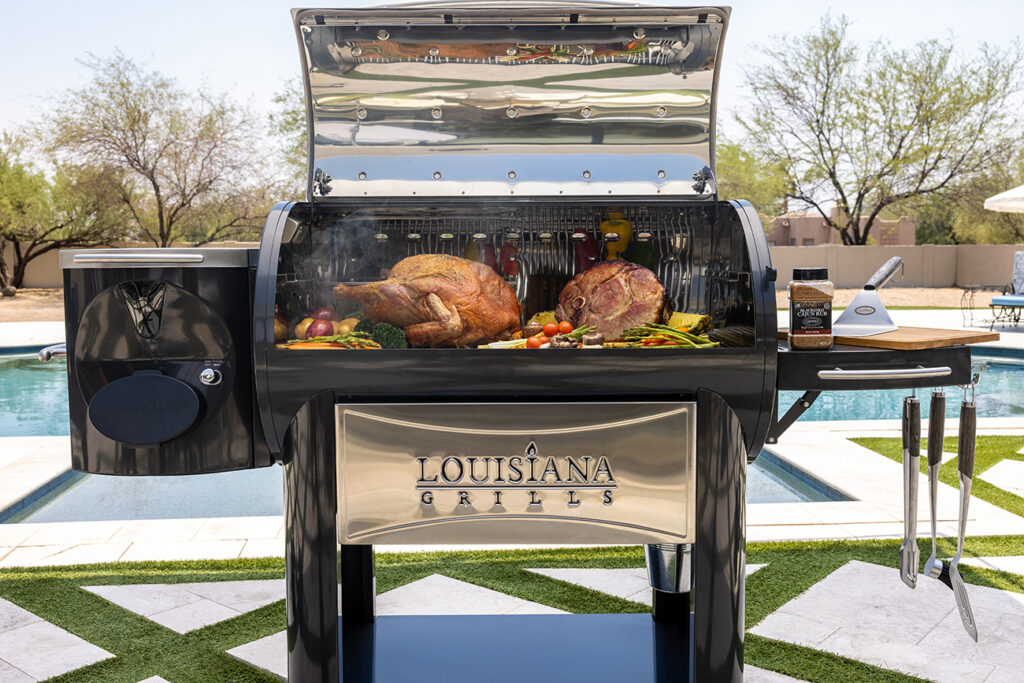Since its formation in the early 20th century, the historic Greenwood district, more popularly known as Black Wall Street, has been a beacon of African American enterprise and culture. Amidst the thriving businesses and a resilient spirit, one tradition has held steadfast, undeniably shaping the social fabric of this neighborhood – the art of barbecue.
With the upcoming Juneteenth holiday approaching it is fitting that the barbecue heritage is discussed.
BBQ, as it’s more commonly known, has roots that delve deep into the core of American culinary history, becoming an indelible part of the social and cultural life of Black Wall Street. The neighborhood’s love affair with BBQ not only offers a tantalizing array of flavors and spices, but it also serves as an emblem of community unity, resilience, and historical continuity.
A History Scented with Smoke and Spice
In the Greenwood district, BBQ has always been more than just a way to prepare food. It’s been an intrinsic part of cultural celebrations, family gatherings, and community cohesion. The art of BBQ’ing, brought by African slaves to the United States, was embraced and evolved within Black Wall Street. Its development paralleled the growth of the neighborhood, with BBQ joints becoming focal points for social interaction and economic activity.
The aftermath of the 1921 Tulsa Race Massacre saw the resilience of the Greenwood district tested. Amidst the chaos and rebuilding, BBQ remained an indomitable symbol of hope and perseverance. The local BBQ joints were among the first businesses to rise from the ashes, serving as bastions of normalcy in a time of turmoil. They were not just places of sustenance, but communal grounds where solace and strength were sought and shared.
BBQ: An Art Form Handed Down Generations
In Black Wall Street, the art of BBQ has been passed down generations, honed to perfection over time. It’s not unusual to see smoke billowing from the backyards of homes in the neighborhood, a telltale sign of a BBQ pit hard at work. Ribs, chicken, brisket, and more are slowly smoked over hours, often using secret family recipes for rubs and sauces.
Local businesses have added their unique twists to these traditional methods, resulting in a wide variety of BBQ styles unique to the Greenwood district. These range from hickory-smoked meats, which pay homage to classic Southern BBQ traditions, to more inventive techniques, highlighting the evolving nature of the local BBQ scene.
BBQ Today: A Symbol of Cultural Resilience
In today’s Black Wall Street, BBQ joints are more than just eateries. They’re living monuments to the neighborhood’s rich history, resilience, and cultural vibrancy. Places like ‘Burn Co Barbecue’ and ‘Oklahoma Joe’s’ not only attract BBQ enthusiasts from across the nation but also serve as community hubs, resonating with the spirit of unity and resilience that defines Greenwood.
Local BBQ festivals and competitions have also become a prominent part of the cultural landscape. These events showcase the diversity and innovation in the local BBQ scene, while simultaneously harking back to the long-standing tradition of communal cookouts, fostering a sense of unity and celebration within the community.
Conclusion: A Legacy Continued
As the BBQ pits continue to burn in the Black Wall Street neighborhood, they signify more than just the tantalizing smell of slow-cooked meats. They are a testament to the indomitable spirit of the Greenwood district, its history of resilience, and its rich cultural tapestry. BBQ in Black Wall Street, thus, is not just a culinary tradition. It’s a historic legacy, a cultural institution, and a unifying force – a true embodiment of the spirit of the community it feeds.
Juneteenth gatherings customarily feature red foods, which are used to symbolize resilience and joy. Delectable strawberry pie, barbecue, red rice, watermelon, hot sauce, red velvet cake and red sausages on the grill are all abundant. But no celebration would ever be complete without Red Drink.
Other articles worth reading:
The Traditional Foods of Juneteenth Carry a Rich History, Dating Back Centuries
Why Red Foods Became A Juneteenth Tradition
44 Recipes From Black Food Bloggers to Celebrate Juneteenth





